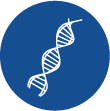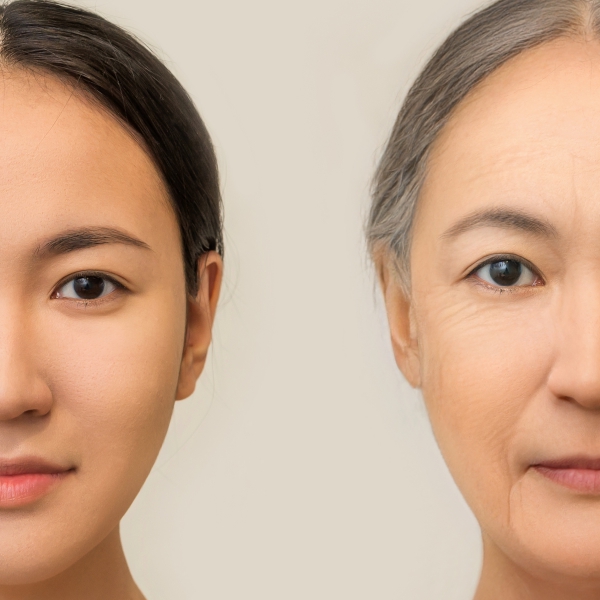Unlock the Secrets to Quality Longevity
The path to longevity has been a desire of humanity for many eras. Over the past 20 years, life expectancy has increased significantly. According to the World Health Organization (WHO), the number of centenarians (people aged 100 and over) has tripled, rising from 180,000 in 2001 to 593,000 in 2021. The global average life expectancy increased by 6.6 years, from 66.8 years in 2000 to 73.4 years in 2019. When broken down by gender, women have an average life expectancy of 75.9 years, while men average 70.8 years. In Thailand, the average life expectancy is 77.7 years, with women living an average of 81.04 years and men averaging 74.36 years.
At the same time, Healthy Life Expectancy (HALE) has also increased, rising from 58.3 years in 2000 to 63.7 years in 2019. However, the increase in HALE (5.4 years) has not kept pace with the overall rise in life expectancy (6.6 years). This indicates that the decrease in mortality rates has been more significant than the increase in the number of years people live in good health.
Aging is the result of the body’s decline in function and its ability to repair and regenerate itself, an inevitable part of human life, much like death. Therefore, the quality of life, especially in the later stages, is crucial. In recent years, there has been a growing focus on the concept of "health span," which refers to the period of life spent in good health, free from serious illness. This emphasis highlights the importance of not just living longer, but also living well.
Lifespan refers to the duration that a person, animal, or entity exists, essentially the age recorded on an identification card. In contrast, "health span" denotes the period of life spent in good health, free from disabilities or serious illnesses. Nowadays, there is a significant focus on finding ways to extend health span, aiming for a longer life that maintains quality of life.
While no living being can escape aging, the rate of bodily decline varies among individuals, influenced by three main factors: genetics, environment, and lifestyle. As a physician dedicated to improving health conditions, I focus on helping people maintain their well-being up to the very end of life. This is why I incorporate lifestyle medicine, which is scientifically proven to be effective in preventing, treating, and reducing the severity of diseases. By addressing the root causes of health issues, we can enhance the quality of life for individuals.
Human age can be measured in two ways. The first is chronological age, which counts the time elapsed since birth based on the calendar. The second is biological age, which reflects the age of cells in the body and varies based on several factors, especially lifestyle choices. If we consistently take care of our health, our cellular age can be younger than our chronological age. While determining chronological age is straightforward, biological age isn't necessarily aligned with the age on an identification card; it requires deeper exploration at the chromosomal level to assess overall health and vitality.
Currently, advances in science are being utilized to enhance health care and well-being through concepts like Scientific Wellness or Medical Wellness. This approach provides more accurate and personalized information, allowing individuals to anticipate their risk of diseases, which is beneficial for prevention and improves treatment effectiveness. It also enables tailored nutrition planning and lifestyle modifications for each individual.In this article, I would like to highlight two in-depth health assessments. Undergoing these tests can significantly help individuals understand their bodies better and determine their true biological age.
- The first method is the measurement of telomere length. Telomeres are located at the ends of chromosomes and function like the plastic tips on shoelaces, preventing the laces from fraying prematurely. Telomeres shorten over time, and the rate of this shortening depends on lifestyle choices. Longer telomeres indicate a younger biological age, while shorter telomeres suggest an older biological age, potentially increasing susceptibility to illness.
- The second method involves epigenetic testing, which examines how various factors and behaviors affect gene expression. This can reveal the risk of developing certain diseases, as environmental factors, diet, exercise, stress levels, and sleep can all influence gene activity. For example, a high-fat diet can reduce the function of the PPARγ gene, which is related to mitochondrial function in cells, thereby decreasing the body's metabolic capacity. Such tests help us make better health-related lifestyle choices.
Thus, it is possible for someone who is chronologically 60 years old to have a biological age of 50, indicating that they have taken excellent care of their physical and mental health. The health assessment results would then suggest that their biological age is 10 years younger than their actual age.
Good health includes not only physical but also mental well-being. The World Health Organization (WHO) defines health as complete physical, mental, and social well-being, highlighting the need to care for all three aspects for holistic health.
Understanding our biological age reflects physical strength, but we must also prioritize mental resilience. The World Happiness Report 2024 shows Finland as the happiest country for the seventh year, while Thailand has fallen to 58th place from 34th a decade ago. Research indicates that psychiatric patients in Thailand nearly doubled from 1.3 million in 2015 to 2.3 million in 2021, underscoring the need to address mental health alongside physical health.
Stress is a silent killer, often hard to detect until it leads to chronic issues like frequent illnesses, obesity, and increased cancer risk. It can be measured by cortisol, the stress hormone, and DHEA (Dehydroepiandrosterone), linked to resilience and happiness. Balancing these hormones is crucial.
Additionally, stress affects telomere length; research shows that women with regular stress have telomeres that are, on average, 10 years shorter than those who are less stressed, underscoring its impact on physical health and biological aging.
Finally, here are five tips for maintaining good health to achieve a biological age younger than your chronological age:
- Eat a nutritious diet
- Aim for at least 30 minutes of exercise, five days a week
- Strive for 8-9 hours of quality sleep each night.
- Avoid harmful substances
- Prioritize mental health
References
- Kaeberlein M. How healthy is the healthspan concept?. Geroscience. 2018 Aug;40(4):361-4.
- Gravina S, Vijg J. Epigenetic factors in aging and longevity. Pflügers Archiv-European Journal of Physiology. 2010 Jan;459:247-58.
- Shadyab AH, LaCroix AZ. Genetic factors associated with longevity: a review of recent findings. Ageing research reviews. 2015 Jan 1;19:1-7.
- Passarino G, De Rango F, Montesanto A. Human longevity: Genetics or Lifestyle? It takes two to tango. Immunity & Ageing. 2016 Dec;13:1-6.
- Levine ME, Lu AT, Quach A, Chen BH, Assimes TL, Bandinelli S, Hou L, Baccarelli AA, Stewart JD, Li Y, Whitsel EA. An epigenetic biomarker of aging for lifespan and healthspan. Aging (albany NY). 2018 Apr;10(4):573.
- Kühn S, Rieger UM. Health is a state of complete physical, mental and social well-being and not merely absence of disease or infirmity. Surgery for Obesity and Related Diseases. 2017 May 1;13(5):887
- สำนักงานสถิติแห่งชาติ. (2564). สรุปผลที่สำคัญการสำรวจสุขภาพจิต (ความสุข) ของคนในประเทศไทย พ.ศ. 2563. กรุงเทพฯ : กองสถิติพยากรณ์ สำนักงานสถิติแห่งชาติ.




